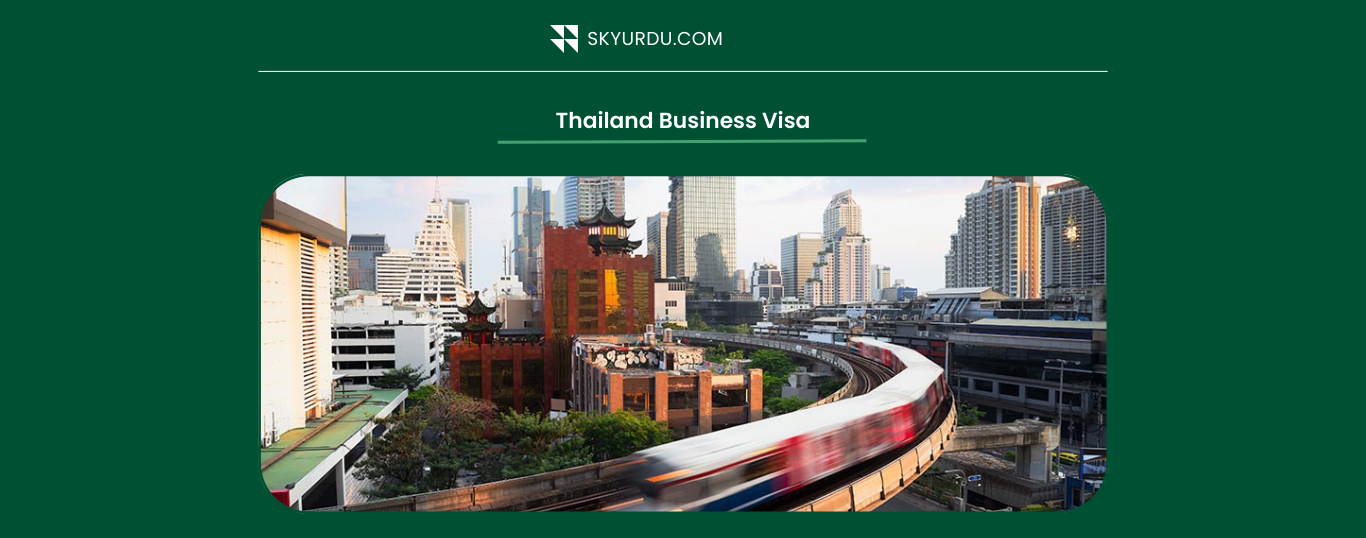Thailand, the land known for its vibrant beaches and vibrant cities along with its growing economy is looking for foreign businessmen, entrepreneurs, and professionals. To start a business and employment in Thailand you will need a Thailand business visa. This guide will help you out with the process by making you understand the application process and visa options along with eligibility criteria and necessary documents.
Thailand Business Visa: Your Gateway to Opportunity
There are two main categories under the Thailand Business Visa umbrella:
- Business Visa for Conducting Business
- Business Visa for Employment (Work Visa)
Business Visa for Conducting Business
This business visa is perfect for those entrepreneurs who want to launch a business venture or startup in Thailand. Even if it’s a new business or starting an already existing business in Thailand you will need company registration.
Business Visa for Employment (Work Visa)
This visa helps foreign professionals or business owners who are looking for work opportunities in Thailand.
Thailand Business Visa Options
Within these categories, you can choose from two visa durations:
- 90-Day Non-Immigrant Visa (Single Entry)
- One-Year Non-Immigrant Visa (Multiple Entry
90-Day Non-Immigrant Visa (Single Entry)
This is a single-entry visa that allows its holder to visit Thailand once and the validity period is ninety 90 days only.
One-Year Non-Immigrant Visa (Multiple Entry
This is opposite to a single entry visa which allows multiple entries in Thailand and exits as well. This entry and exit are allowed throughout the validity period of this business visa. After the work permit application and its acceptance, you can successfully upgrade this visa to a business visa.
Important Note:
Upgrading a 90-Day Visa to a Business Visa requires a work permit, obtained after entering Thailand.
Conditions of a Thailand Business Visa
- Re-Entry Permit
- Reporting Requirements
- Visa Renewal
- Work Permit
Re-Entry Permit: For every departure from Thailand this Re-Entry permit is essential, all 90-day visa holders must have this.
Reporting Requirements: Those visa holders who have one-year non-immigrant visas, these holders are required to appear and report to the Thai immigration office every ninety 90 days.
Visa Renewal: Renewals are available but this is only achievable from Thailand. You cannot renew your visa from outside the country.
Work Permit: In order to work in Thailand, a work permit is required and that must be obtained in the 90-day visa period.
Thailand Business Visa Requirements: A Closer Look
The required documents vary depending on whether you’re applying for employment or to conduct business. Here’s a general overview:
- Valid Passport
- Completed Non-Immigrant B Visa Application Form
- Recent Passport-Sized Photograph
- Proof of Finances
- Travel Itinerary (if applicable)
- Valid Passport: The passport of the applicant must be valid for at least six months beyond his or her intended stay in Thailand. Along with this, the applicant is required to have at least two blank pages for stamping purposes.
- Completed Non-Immigrant B Visa Application Form: The visa application form must be filled out completely and accurately with the information that matches your documents
- Recent Passport-Sized Photograph: The passport-sized photographs must meet the size and dimension requirements. The background and the overall attire should also meet the requirements set by Thai authorities.
- Proof of Finances: Demonstrating sufficient funds to support your stay (amount varies depending on application type). This can be achieved through bank statements and other related documents.
- Travel Itinerary (if applicable): For those applying for a business visa for conducting business, this document must contain your departure schedule and other activities that you are going to perform in Thailand.
Read More… How to Apply Work Visa for Kuwait.
sometimes the embassy or consulate will ask for additional documents depending on your case, so it is the responsibility of an applicant to submit those within a specified timeframe to avoid rejection or more time being consumed.
Share this Post:

